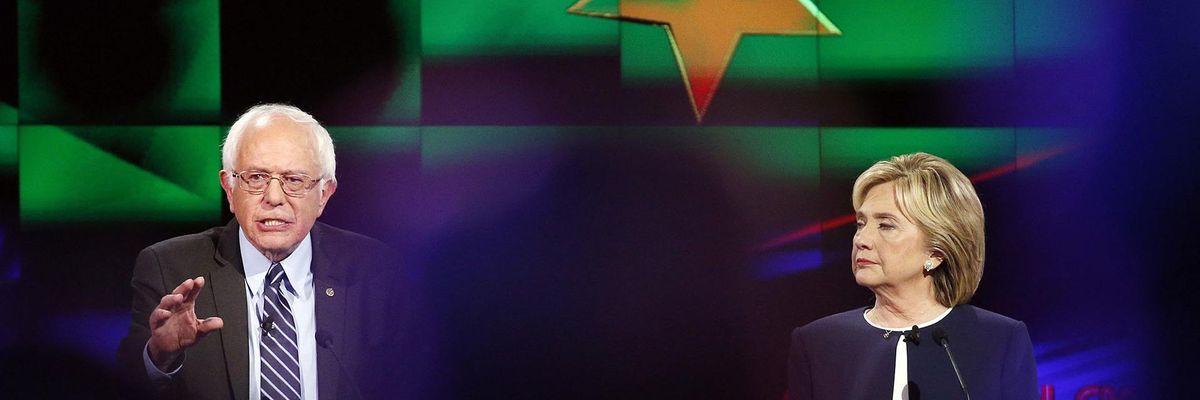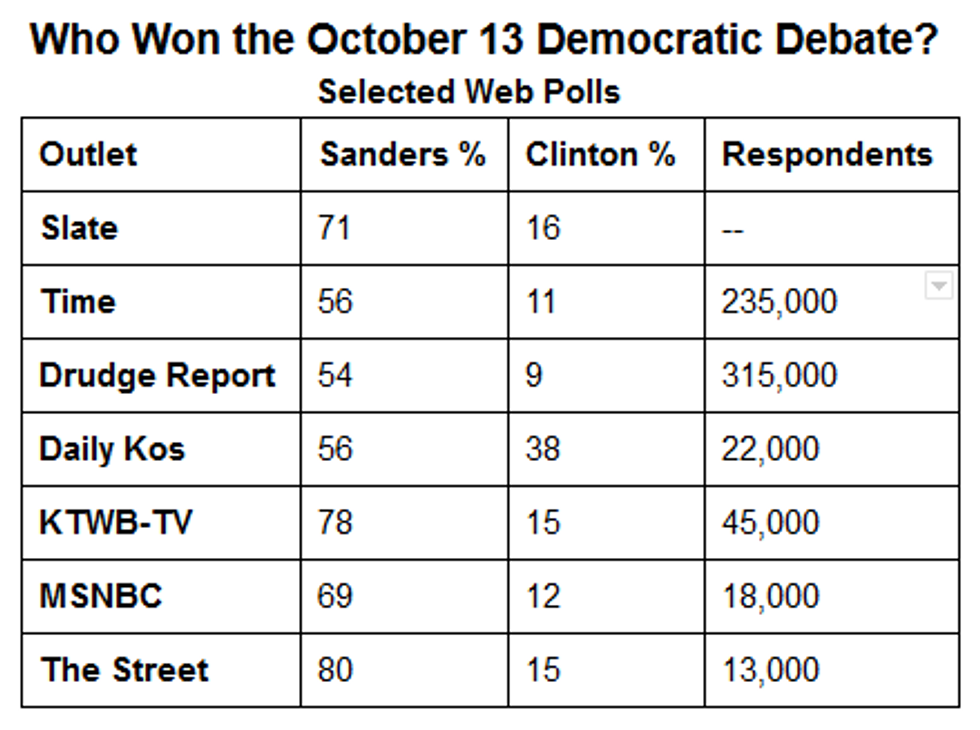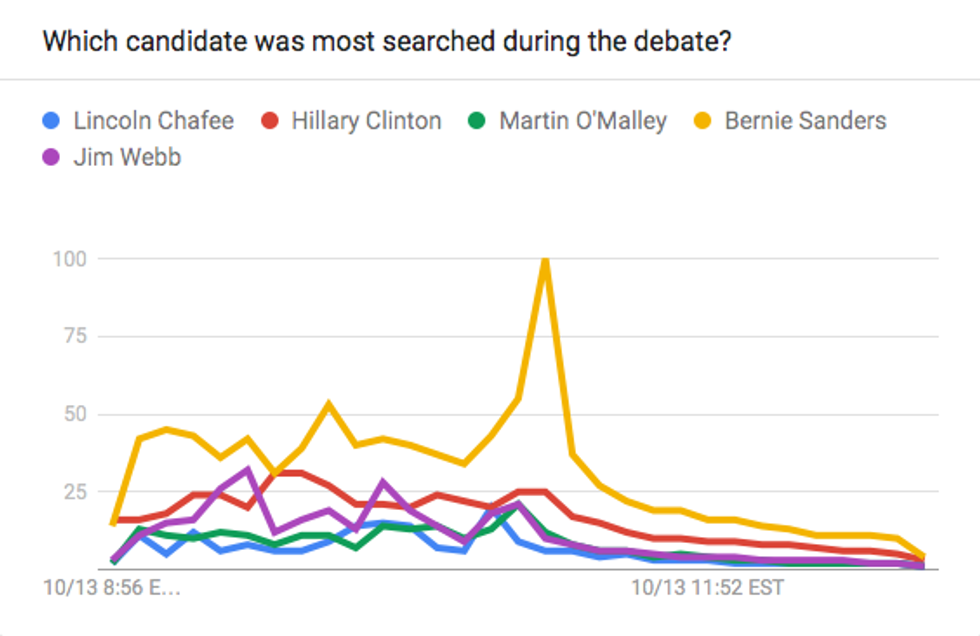A New York Times article (10/14/15) by Alan Rappeport about who won last night's Democratic presidential debate reported today that "Hillary Rodham Clinton was the clear victor, according to the opinion shapers in the political world (even conservative commentators)."
The Times quoted National Journal columnist Ron Fournier ("Hillary Clinton won," 10/13/15), Slate writer Fred Kaplan ("She crushed it," 10/14/15), New Yorker staffer Ryan Lizza ("Hillary Clinton won because all of her opponents are terrible," Twitter, 10/13/15), Red State blogger Leon Wolf ("Hillary was (astonishingly) much more likable and personable than everyone's favorite crazy socialist uncle," 10/13/15), pollster John Zogby ("Mrs. Clinton was just commanding tonight," Forbes, 10/13/15) and conservative radio host Erick Erickson ("I'm still amazed the other four candidates made Hillary Clinton come off as the likable, reasonable, responsible Democrat," Twitter, 10/13/15). If these so-called "opinion shapers in the political world" declare Hillary the winner, then Hillary must be the winner, according to the Times.
What the Times and these pundits failed to mention is the fact that every online poll we could find asking web visitors who won the debate cast Vermont Sen. Bernie Sanders as the winner--and not just by a small margins, but by rather enormous ones.
Seventy-one percent of participants in Slate's online poll, for example, favored Sanders, while only 16 percent preferred Clinton. Time's web poll of nearly 235,000 had Sanders at 56 percent and Clinton at 11 percent (Webb: 31 percent).
At Daily Kos, which caters to hardcore partisan Dems, 56 percent of nearly 22,000 participants said that Sanders won, vs. 38 percent for Clinton. MSNBC's poll of 18,000 had Sanders at 69 percent and Clinton at 12 percent.
Sanders also showed appeal among the visitors to right-leaning sites: The conservative Drudge Reportfound that of more than 315,000 people, Sanders polled at 54 percent and Clinton at 9 percent (former Sen. Jim Webb got 25 percent). A poll by KSWB-TV, Fox's San Diego affiliate, found that 78 percent of 45,000 respondents thought that Sanders won, as opposed to 15 percent who favored Clinton. The Street, a financial news website, found that 80 percent of 13,000 respondents dubbed Sanders the winner, while only 15 percent thought Clinton won.
Although these polls only represent the views of these sites' visitors who volunteered to participate, the consistently high share saying that Sanders prevailed in the debate, across a range of websites with wildly varying audiences, is striking.
Adam Johnson, associate editor at AlterNet and frequent FAIR.org contributor, pointed out (AlterNet, 10/14/15) that not only had Sanders won every online poll "by at least an 18-point margin," he also was picked as the winner by various media-convened focus groups: "Sanders won the CNN focus group, the Fusion focus group and the Fox News focus group; in the latter, he even converted several Hillary supporters."
Another, more rigorous gauge of Sanders' debate performance came from an analysis of Google searches. According to Google, Sanders was the most-searched candidate for almost the entire debate. After the debate was over, he was the most-searched candidate in all 50 states.
There is one outlier in the data about the Democratic debate, but it's one that should carry some weight, given that it's the only poll so far ask a random sample of respondents about debate performance. This poll, conducted via automated telephone calls by research firm Gravis Marketing (One America Network, 10/14/15), found that 62 percent thought Clinton won, while 30 percent gave it to Sanders.
The poll, however, is described as a "random survey of 760 registered Democratic voters across the US"--not as a survey of people who actually watched the debate. Given that there are some 43 million registered Democrats in the country and 15 million people who watched the debate, not all of whom are Democrats, it's highly likely that a large majority of the poll's respondents got their impressions of who won the debate secondhand.
If they relied on corporate media to tell them about the debate, as no doubt many of them did, it's no wonder that most of them thought Clinton won.




